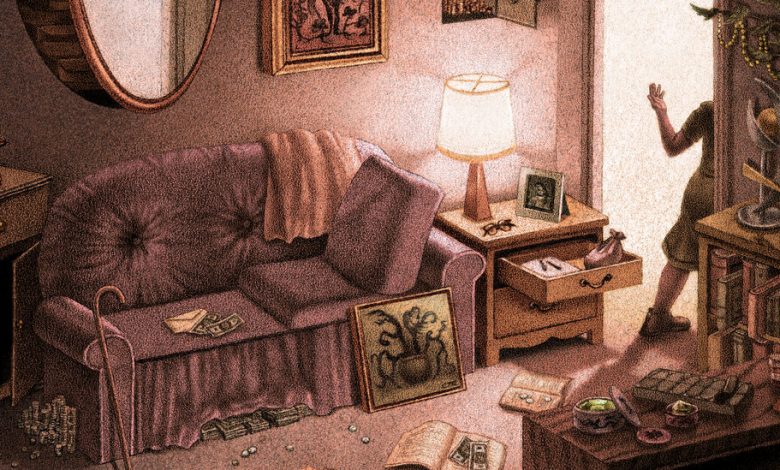When the Money Is Under the Mattress. Or in the Freezer. Or a Shoebox.

After their father died in 2021, Susan Camp and her brother cleaned out his home — and inadvertently threw out $5,000 in cash he had wrapped in aluminum foil and stashed in the freezer. (Luckily, they later retrieved it.)
And she was surprised, but not shocked, to also discover $6,000 in a box that once held a bottle of cologne. “Dad traveled, and he always wanted cash on him,” she said.
Adrienne Volpe’s grandmother kept her extra cash in her library.
“My grandmother had pressed thousands of dollars in single bills inside books,” Ms. Volpe said. “We thought we were going to find fall leaves” between the pages, she said. They had to open every book in the house to find the cash she had hidden — around $10,000, it turned out, in denominations as small as $20.
It might not be under the mattress, but for people who stumble across a small fortuneafter an elderly relative dies or moves to a nursing home, uncovering such unexpected wealth — technically part of a person’s estate — can bring complications and even conflict.
Oftentimes, members of older generations perceive keeping cash, gold or other valuables at home as safer than keeping them in a bank, experts say. “I think this is more common for the baby boomer generation and older,” said Mark Criner III, senior trust strategist for Baird Trust in Scottsdale, Ariz. “When you get to that generation, there was a real mistrust of financial institutions,” he said, referring to people old enough to remember the Great Depression and the bank failures of the 1930s.
Mr. Criner said that if family members noticed this behavior, communication was important. “When that’s being recognized, it’s important to start the dialogue,” he said.